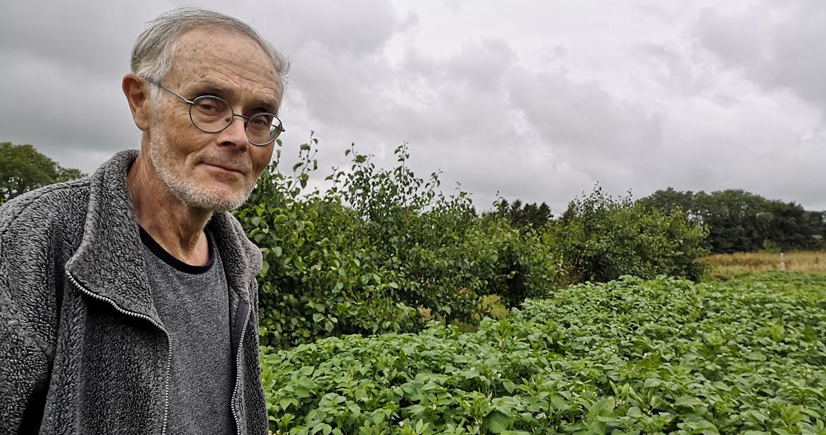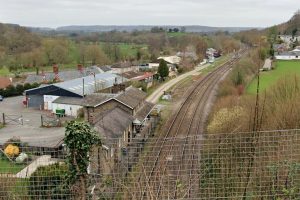by Tess Delaney
THE FIRST hearing to be held under Coronavirus distancing rules at Haverfordwest County Court last Friday upheld the right of access needed by Chrystia and Keith Hertogs to run their sustainable holding in Llanycefn.
The court considered whether the holding’s use of the historic stone road from Rhydwilym towards Maenclochog and Llanycefn, was limited by the public bridleway rights that also make use of the same road.
The hearing ended with all parties agreeing that the Hertogs’s holding has ‘the right of road or way’ along the stone road, ‘at all times and for all purposes’, with an injunction in place to protect their use.
Chrystia Hertogs explains: ‘Local roads like this one have many uses, added over centuries of local history. Farms and houses often have private rights of access, which are in no way reduced or limited, by the road’s also later being designated as a public bridleway.’
Groundwork contractor John Llewellyn from Crymych, who was a remote witness in the hearing, commented: ‘I was born in Glan Rhydwilym. I know that whole area like the back of my hand. Those upper fields of Dolfelfed farm were always run, using that stone road.
“I went to school, and to friends’ houses, along it. My sister’s best friend went to school at Nant-y-Cwm, and lived at Cefn Mwynant.
“Aged 17, I drove out hay myself, from the fields of Keith’s holding, over the same stone road.’
Mr Mark Dyson, a retired planning lawyer, acted as McKenzie friend (legal supporter) to Dr Hertogs.
“My own view,” said Mr Dyson, “is that, since we are at the tipping point into massive climate catastrophe, access to land should urgently be made easier for the increasing number of people who want to do the work of sustainably improving soil carbon, and planting trees. These are now mainstream aims of Wales and UK policy, and I’m pleased with today’s decision.”
Keith and Chrystia Hertogs find, after ten years of regenerative agriculture, tree-planting and use of local biomass to improve the depleted pasture soil, that salad, fruit, and vegetable crops now produce well.
“The United Nations’ Farming and Agriculture Organisation estimates that 30% of the world’s soils are degraded, so Wales is not alone in needing regenerative action.” Keith said.
He continued: “European farm soils were formed during millennia of tree-cover, and have now been used for a couple of centuries without replenishment. Regeneration re-creates soil from planted trees, nitrogen-fixing perennials, green manure, sustainable, brief, grazing rotation, and silvipasture.”
The Welsh Government’s target is to plant 1000 km2 of new trees, an area about the size of Pembrokeshire, by 2030, spread throughout Wales.
Dr Hertogs said: “The Welsh Government’s sustainability policy, ‘One Wales, One Planet’ is uniquely forward-looking. It’s strongly based on environment and economic evidence, not the wishful dream of limitless consuming, exceeding global resource limits, which is – right now – destroying our planet.
“The policy’s One Planet Development thinking, deserves to change the norm, to provide low-impact work, housing, and new food-growing by ordinary people across Wales.’
“One Planet Development fits perfectly with the work I did in the NHS, encouraging physical work and healthy food, to help people avoid diabetes and heart disease.”
During their delivery round of greens and salads, Keith and Christyia havre found many local people, including young people, have started growing their own during the coronavirus lockdown.
Keith concluded: “This is exactly the time for all of us as new, successful gardeners, to plan and plant trees and nitrogenous bushes, so we can feed our soil, keeping it healthy and productive for future generations.”












